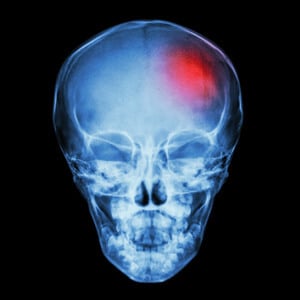
Fetal Brain Injury Research
When it comes to congenital brain injuries, we know that many of these conditions are preventable. Yet it has been difficult for obstetricians and other physicians to clearly identify birth defects involving the brain before birth. A recent article in the Philadelphia Inquirer, however, reports that researchers are in the process of developing a new test for fetal brain injury.
A team of scientists at Temple University School of Medicine is working to identify “maternal blood biomarkers” that will help physicians “assess fetal neurodevelopment in the first and second trimesters.” In other words, the new test will allow expecting mothers to know quite early on in the pregnancy, through a simple blood test, whether their child is likely to have a birth defect that will affect the brain.
The study is being led by Dr. Laura Goetzel, a professor of obstetrics, gynecology, and reproductive sciences at Temple. Along with the members of her research team, she is working with the Shriners Hospital Center for Neural Repair and Rehabilitation to develop this “noninvasive maternal blood test” that can “help predict abnormal fetal neurodevelopment.” In their work, the researchers are examining the potential causes of these serious birth defects, focusing on the mother’s use of antidepressants, amphetamines, alcohol, and certain other medications.
As of now, most data about fetal brain injuries only becomes available in the third trimester, which, according to Goetzel, usually is too late for “intervention” or “reduction of injury.” The study hopes to alleviate this problem. However, the study still has a ways to go. The researchers believe that it could take up to ten years before we know if it will have a significant impact on prevention and early diagnoses of fetal brain injuries.
Fetal Head Trauma: What You Need to Know
Head trauma can occur both in utero and during delivery. As a result of fetal brain injuries, children can develop very serious conditions. Depending at what point in the pregnancy or birth process these injuries occur, head traumas can result in some of the following conditions:
- Cephalohematoma (blood hemorrhage under the skull bone) and other types of brain hemorrhages;
- Cerebral palsy;
- Neural tube defects (including anencephaly, encephalocele, and Spina Bifida);
- Hydrocephalus (fluid on the brain);
- Dandy-Walker syndrome (a defect of the central section of the cerebellum);
- Holoprosencephaly (a defect where the brain fails to divide into two hemispheres);
- Megalencephaly (an abnormally large or heavy brain); and
- Microcephaly (an abnormally small or underdeveloped brain).
What are some of the causes of congenital brain defects? The recent study at Temple University School of Medicine focuses primarily on medications or alcohol consumed by the pregnant mother. Researchers have identified some of the following risk factors when it comes to fetal brain injuries:
- Alcohol consumption by the mother during pregnancy;
- Prescription drug use (particularly antidepressants or amphetamines) during pregnancy;
- Recreational drug use during pregnancy;
- Infections; and
- Maternal exposure to x-rays or to radiation therapies.
If your child suffered a brain injury, you should discuss your situation with an experienced birth defect attorney. You may be eligible to seek financial compensation on behalf of your child.



